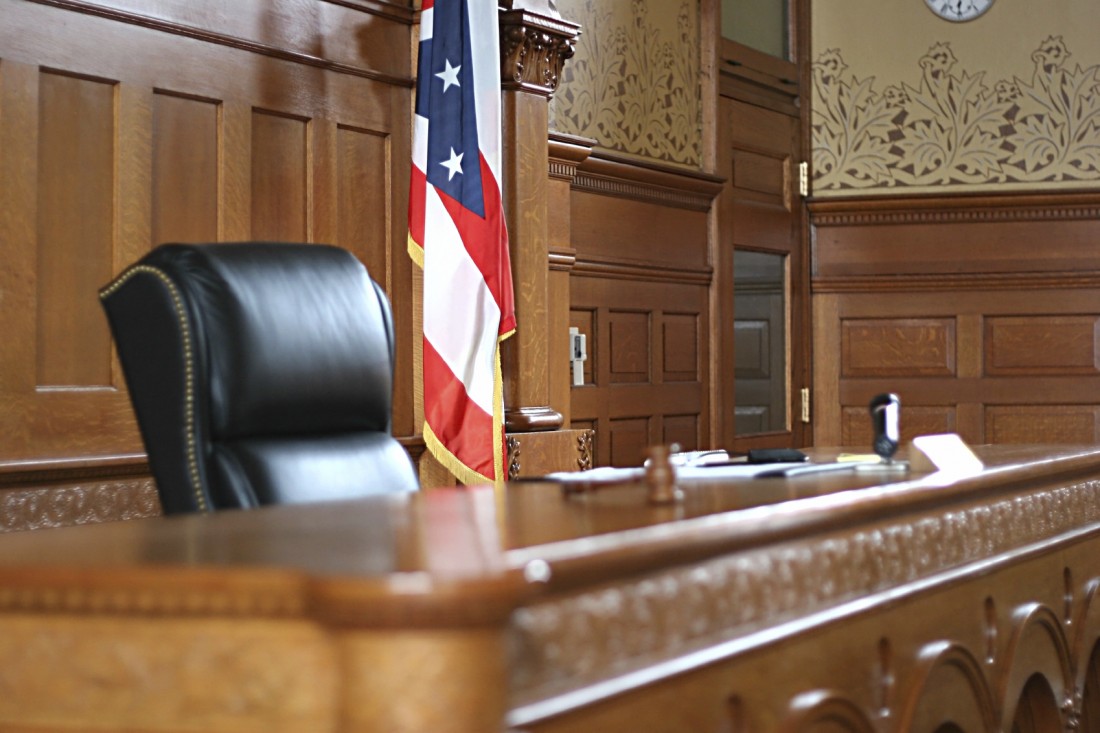Articles Posted in Courts
How Do Judges Determine Compensation for Personal Injury Victims?
If it is determined that the defendant in a personal injury case was responsible for the plaintiff’s injuries, the judge on the case will need to determine how much money the defendant needs to compensate the plaintiff for. The compensation amount in a personal injury case is determined by several different factors that should have been presented by the plaintiff’s lawyer in court.
The following are a few expenses that the plaintiff had to cover that will typically be factored into the compensation amount by the judge:
- Medical costs– While presenting the plaintiff’s case, the plaintiff’s lawyer will detail all the medical costs that were incurred as a result of the injury. This will include medical costs that have already been incurred and projected medical costs that will be incurred in the future by the injured plaintiff.
I Violated My Probation for the Second Time, Now What?

It happened again. You’ve violated your probation for a second time and jail time is looking very possible in your future.
Whether it was a failed drug test, not reporting to your probation officer or being arrested for a new offense, the judge will likely be much less lenient the second time around. So, what should you expect to happen?
According to Lawyers.com, here are some of the consequences that come with violating probation:
Attorney Fee for Criminal Lawyer
There is no set guideline or rule as to how much a criminal lawyer charges for a given case. How much a lawyer charges may depend upon a variety of factors: the nature of the charge; the anticipated amount of work that needs to be performed; the anticipated amount of time that needs to be spent; the reputation, experience, and expertise of the lawyer; the complexity of the case; whether or not the case is expected to go to trial; etc.
In Michigan, a lawyer is ethically not allowed to charge a contingency fee for a criminal case (i.e. no fee unless we win or a certain result is obtained). A lawyer is also not allowed to pay any fees, costs, restitution, or post bond on behalf of the client that is in the lawyer’s name.
Many jurisdictions do not allow a court appointed lawyer to receive compensation beyond what the court appointed fee schedule provides, and the client is not allowed to pay extra to the court appointed lawyer with the hope that the lawyer will spend more time on the case. A court appointed lawyer is not usually free, and the court will usually order a Defendant to reimburse the jurisdiction for the cost of the lawyer. With court appointed lawyers there is always a concern that you get what you pay for. A court appointed lawyer is sometimes overwhelmed, inexperienced, and/or indifferent to your situation. When faced with a criminal accusation, you really need to consider what will be best for you, your family, and your future.
Steps to Take After You are Accused of Violating Your Probation
If you’ve been convicted of a crime, it’s natural to hope for a sentence of probation rather than jail time. After all, probation allows you to stay out of the harsh environment of a jail or prison, and you’ll still be able to live your live relatively normally as long as you stay within the guidelines of your probation. However, if you’ve been accused of violating your probation, you could be in for harsh consequences, including hefty fines, added conditions to probation, the loss of a status to keep the incarceration from a public record (if applicable), or even incarceration. It’s a serious situation, and you should know how to deal with it in a way that will protect your rights.
Contact Your Probation Officer
Your probation officer will have a tremendous amount of leeway when deciding how to respond to a potential probation violation. Make sure to contact them early, and have a detailed explanation for what happened. Don’t give excuses, but explain the events in a respectful, apologetic tone. Make sure to have supplemental material and proof to back up your account. If your officer is inclined to be a little bit lenient, you might get off with a warning. If the officer is intent on setting a court date, however, your options start to narrow down quite a bit.
How Can You Find the Best Attorney to Defend You Against Criminal Charges?

If you’ve been charged with a crime, the absolute first thing you need to do is to secure a good attorney. You don’t want to have to rely on the overworked public defender to help your case, and you absolutely don’t want to let the police and the prosecutor have their way with you without proper representation. However, with all the lawyers listed in any given area, it can be tough to decide which one to go with. Luckily, there are a few tips you can follow to make sure that you’re picking the right attorney for your case.
Specialty in Criminal Defense
For every aspect of law, there’s a lawyer who’s specifically trained in that one area. You need to make sure that you’re matching the right attorney with your specific situation. A patent law specialist isn’t going to do you much good in your situation; you need an expert with experience in criminal defense. The problem is there are some attorneys that claim to specialize in criminal defense that are not being truthful. Handling a criminal case from time to time is much different than being a full time practitioner. A so called criminal defense lawyer that has no trial experience may only seek to run you through the system.
Somerset Collection Retail Fraud
The Somerset Collection (which is also often referred to as Somerset Mall) in Troy, Michigan is known for its assortment of high end stores and is a popular destination for many shoppers. One of the issues that the mall and its individual stores face everyday is retail fraud (also known as shoplifting). The Somerset Collection and its individual retailers combat this issue by employing trained security/loss prevention workers, closed circuit television (CCTV), and theft detection devices to identify, and aid in the apprehension and prosecution of suspected shoplifters. One of the strategies to address the retail theft issue is aggressive prosecution by the Oakland County Prosecutor’s Office and the Troy City Attorney to act as a deterrence to others and to try and prevent repeat offenders.
A conviction for Retail Fraud (also known as shoplifting) can have serious implications on an individual’s reputation, employment or career, ability to get school loans or attend school, and immigration status (for persons that are not citizens). There is the potential for incarceration, probation with conditions, community service, drug testing, economic crimes classes, counseling, fines, cost, and restitution for an individual who is convicted of retail fraud.
Retail Fraud always involves an allegation of a theft from a store which is open to the public for business at the time of the offense. It can occur by either physically moving or concealing merchandise with the intent to steal, or altering or removing a price tag with the intent to defraud.
What Is the Difference Between State and Federal Prosecution?

Depending on the nature of a crime, an individual can either be prosecuted at the state or federal level. In either case, the prosecutor formally charges a person based on evidence. In most cases in Federal Court, cases proceed on the basis of an indictment, rather than an information. In Michigan State Court prosecutions usually an information is filed, rather than an indictment.
If there is not enough evidence, sometimes the State or Federal government will not officially charge someone with a crime if they do not think they can prove to a jury, beyond a reasonable doubt, that the person in question committed the crime. At Hilf & Hilf PLC, we try to educate our prospective clients on the prosecution process so they better understand why a State or Federal prosecutor has filed charges and why it’s so important to secure the help of the right criminal defense attorney.
It’s somewhat difficult to provide a list of crimes that automatically fall under state or federal jurisdictions because many felonies are subject to a state prosecution such as car theft, murder, criminal sexual conduct and more. However, if a person crossed state lines or used inter-state commerce while committing one of these crimes, federal prosecution is possible. In general, Federal prosecutors will file charges against someone for offenses such as interstate drug or gun trafficking, robbery of federally insured banks, federal tax crimes, and other offenses that have the possibility of causing serious harm or damage. With some offenses, such as child pornography, decisions as to prosecutions are made by Federal prosecutors and State task forces. Considerations as to child pornography prosecutions are made based upon: the number of images allegedly possessed; whether or not the individual allegedly possessed, distributed, or produced the images in question; the alleged nature of the acts contained in the images; whether or not inter-State sales or distribution of the images occurred; whether or not human trafficking occurred, etc.
Consent Probation for Juvenile Court
Juvenile first time offenders can sometimes qualify for consent probation (also known as the consent calendar). The advantage of consent probation is that the juvenile receives a commitment that if he or she follows the conditions of the court that they will not be detained in a juvenile facility. Also the offense is not placed on the juvenile’s record, which gives the juvenile the opportunity to have a better chance of success in life by keeping a clean record. The juvenile and his or her parent or guardian must agree to consent probation in order for it to occur. The conditions that the court could impose include, but are not limited to, the any or all of the following: community service, counseling, drug testing, alcohol testing, writing an essay, paying restitution, remaining in school, obtaining and keeping a job, etc.
If the juvenile does not abide by the terms of consent probation, the case could be prosecuted and the juvenile could end up being detained. If the case is prosecuted and a determination of guilt is made, the Judge or referee assigned to the case has broad discretion in terms of sentencing. Sentencing could including being detained in a juvenile facility, probation with conditions (such as community service, counseling, programs, drug and alcohol testing, etc.).
Being placed on consent probation is not automatic – it is within the discretion of the court. Juveniles accused of criminal conduct , or accused of not following the terms of consent probation or probation, should have experienced legal representation. When a case is ultimately reviewed by a juvenile court referee or Judge, he or she may make a determination that the juvenile should not be afforded this privilege. The juvenile is questioned by the assigned referee or Judge before they make a determination as to whether or not the placement should occur. The juvenile has a right to bring a retained lawyer to any court date.
What Is the Process for Appealing a Felony Conviction in Michigan?

Sometimes, those convicted of felonies seek to appeal their case to a higher court. Usually, the defense attorney attempts to prove that an error occurred in the application of the law. After an individual is found guilty of a felony in Michigan, he or she has a period of 42 days to petition a higher court for another trial.
Persons that plead guilty or no contest to criminal offenses can file an application for leave to appeal, if they file the application timely. The appellate court will decide on the application alone whether or not they will actually hear the appeal. The prosecution is not obligated to file a response to an application for leave to appeal. Most cases involving applications for leave to appeal are rejected at the appellate level. If the application for leave to appeal is granted, the appellate procedure is followed in the same way as if the appeal was by right. The prosecutor has the opportunity to respond. Both sides have the ability to seek an oral argument on the appeal.
This petition to the Michigan Court of Appeals does not have to include the grounds for the appeal. However, the defendant must include a filing fee of $375, proof that transcripts were filed from the lower court’s proceedings, and a copy of the docket from the day of the original case. For a fee, the court reporter will provide the felon with a copy of the notes from the trial. Notes typically involve hearings, motions, the trial itself, and sentencing. A transcript in most cases is required, along with proof that the transcript was ordered.
 Michigan Criminal Attorneys Blog
Michigan Criminal Attorneys Blog

